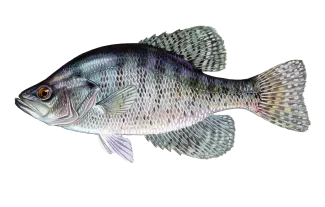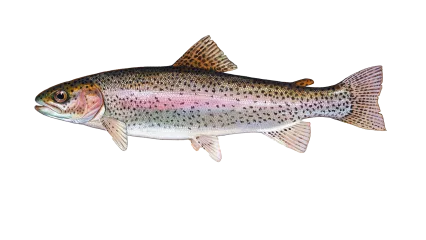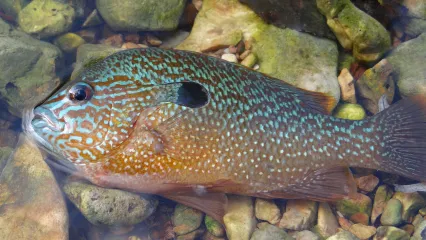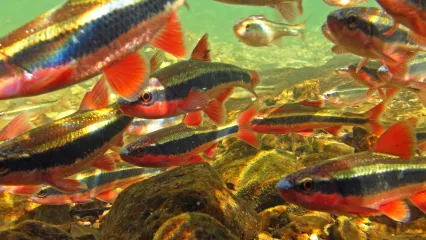
Description
Now found statewide in many lakes and rivers, crappie was originally a stream fish in Oklahoma. Both black crappie and white crappie do well in lakes of at least 500 acres. While black crappie requires clear lakes, white crappie is adapted to slightly turbid lakes. Neither species is suited for farm ponds because they tend to overpopulate these small bodies of water.
The most distinguishing characteristic is the marking patterns or spots on the sides of the fish. White crappie, the most prevalent crappie in the state, will have distinct vertical bands of blue/gray spots, whereas black crappie will have only a sporadic, unrecognizable pattern to its black spots. There is also a difference in the number of bony spines in the dorsal fin. White crappie will have 5 to 6, whereas, black crappie will have 7 or 8.
Facts: Crappie is a favorite winter fish in Oklahoma. They form loose schools and often when you find a school, others can be located close by. Crappie can be caught year-round and its sweet meat makes exquisite table fare. The average crappie caught in Oklahoma weighs between a half and one and a half pounds.
Fishing Tips
Habitat
Crappie are usually associated with standing timber and brushy cover in lakes. In the spring they inhabit the shallow ends of coves, later moving to water 15 or more feet deep.
Food sources: Minnows, shad, crayfish, mollusks, and insects.
Life Cycle
Spawning habits of white crappie are similar to other sunfishes except they usually nest in deeper water. Black crappie construct their nests and deposit their eggs at even greater depths than white crappie. Females of both species deposit from 3,000 to 15,000 eggs. Spawning occurs shortly after water temperatures reach 55 to 65 degrees F. After spawning, males guard the eggs and fry.


